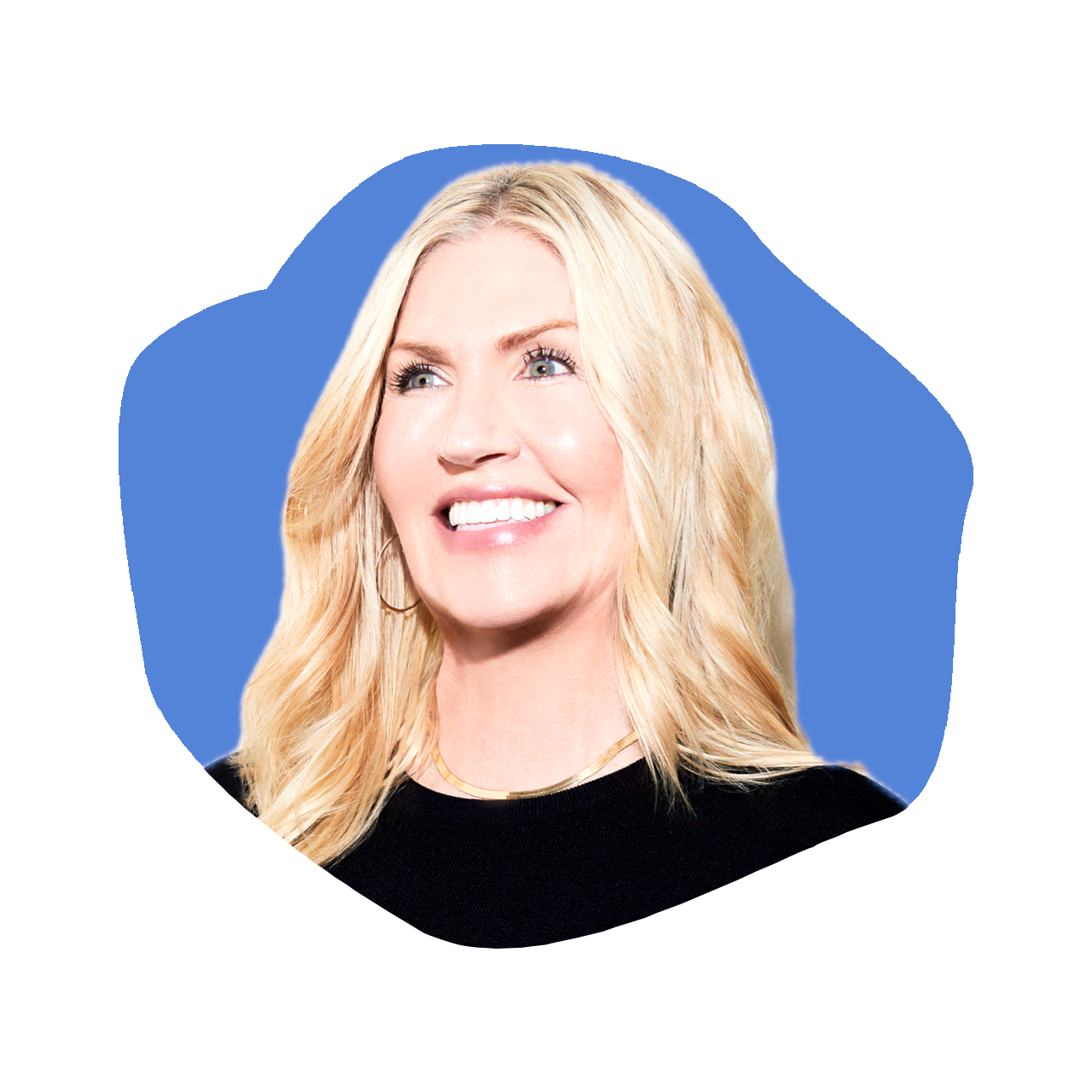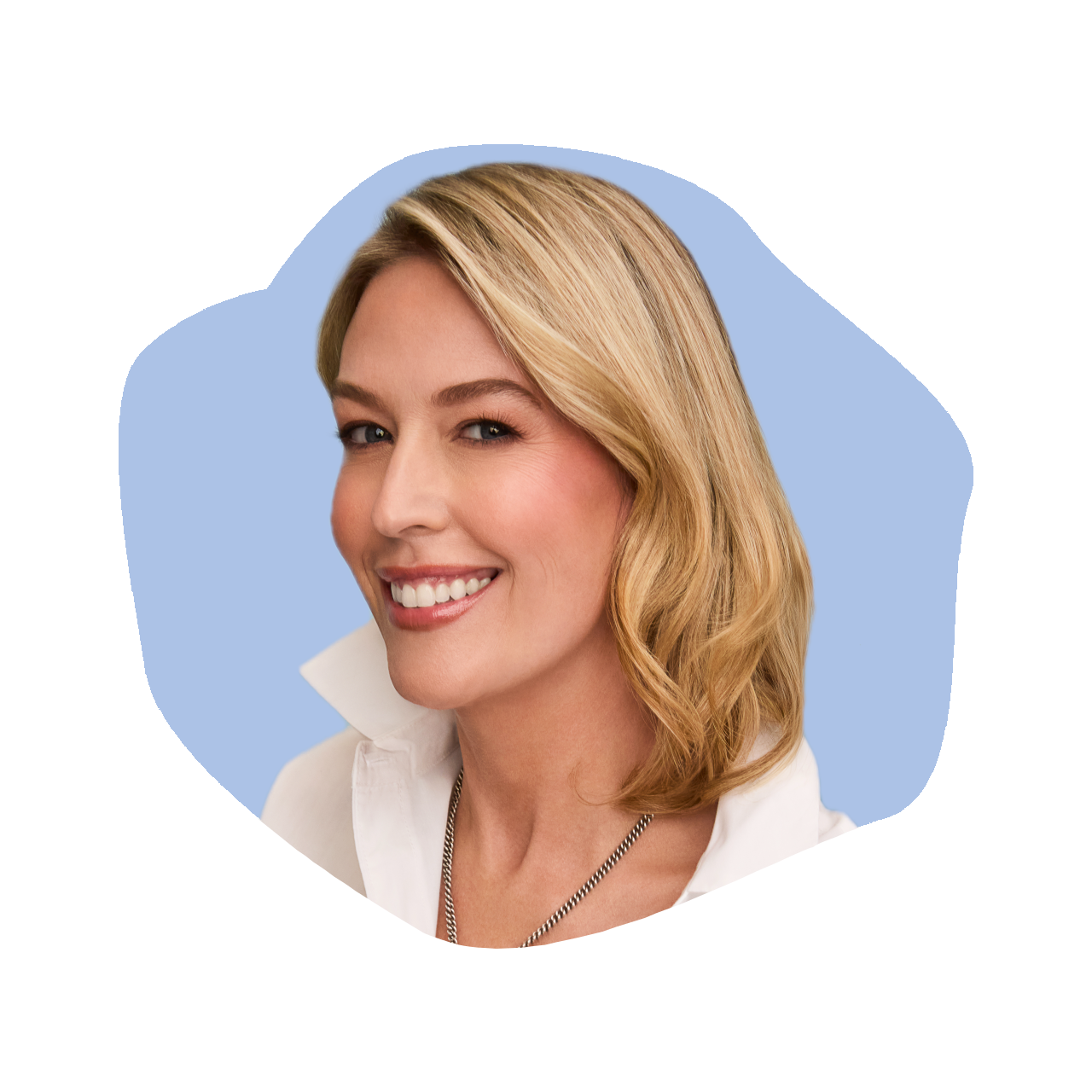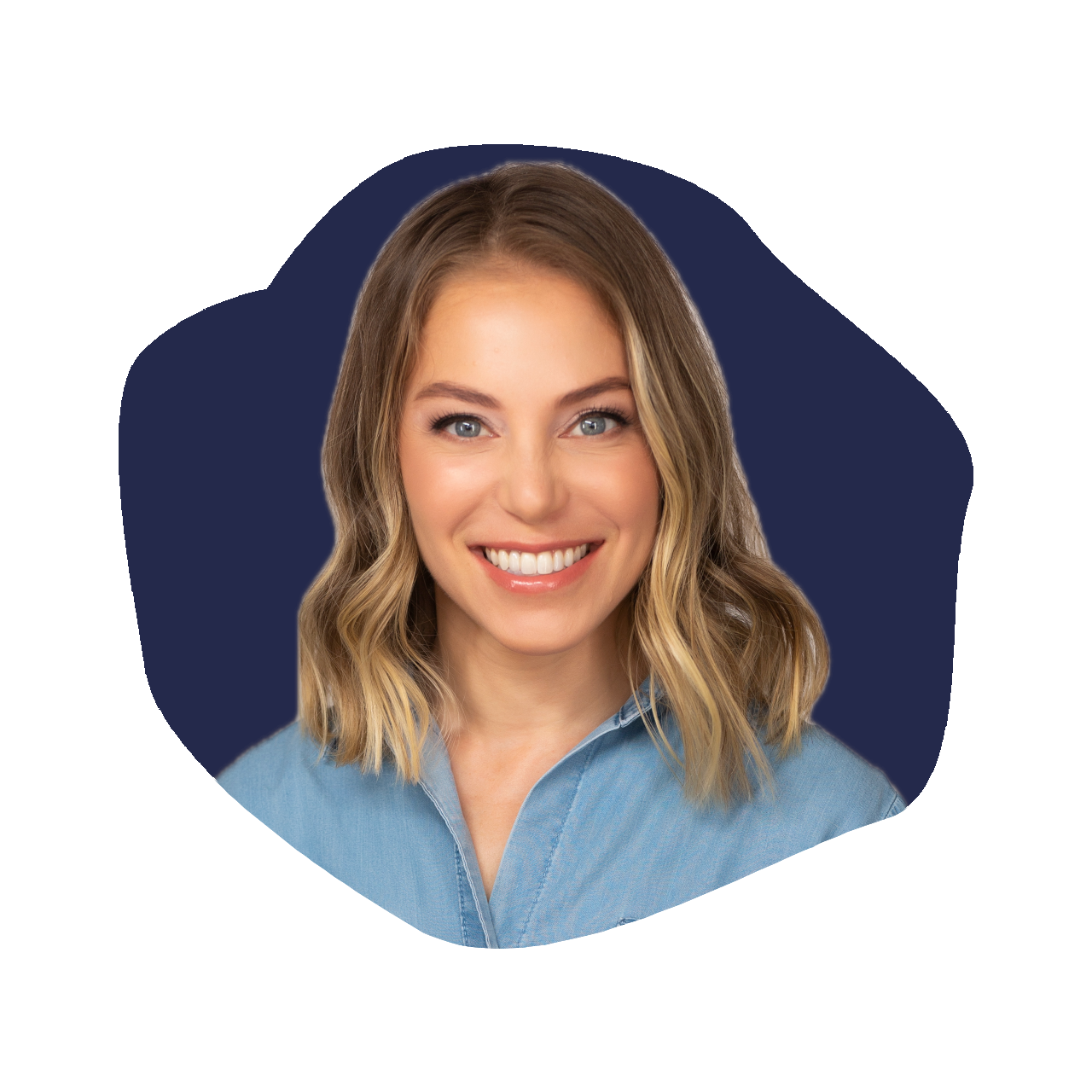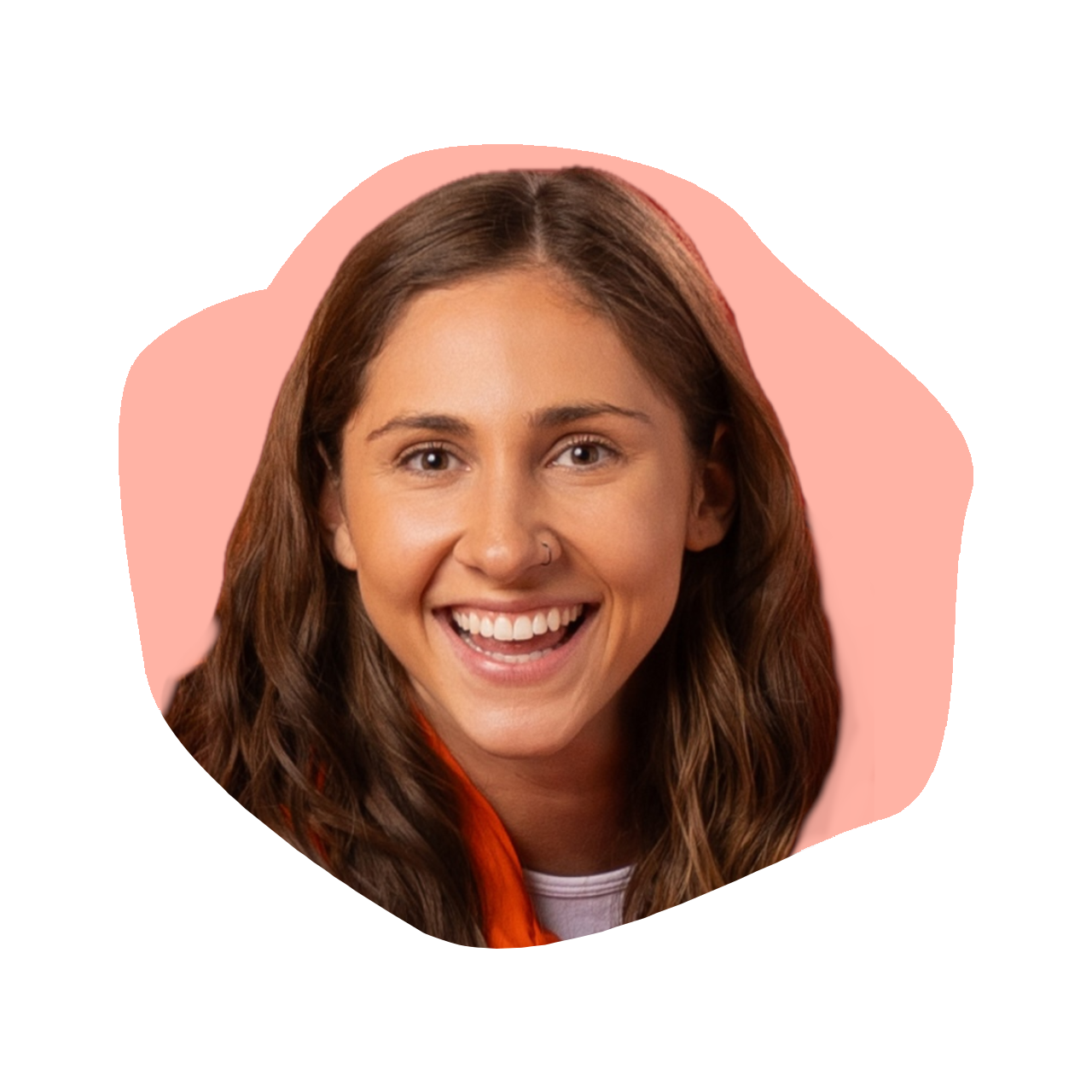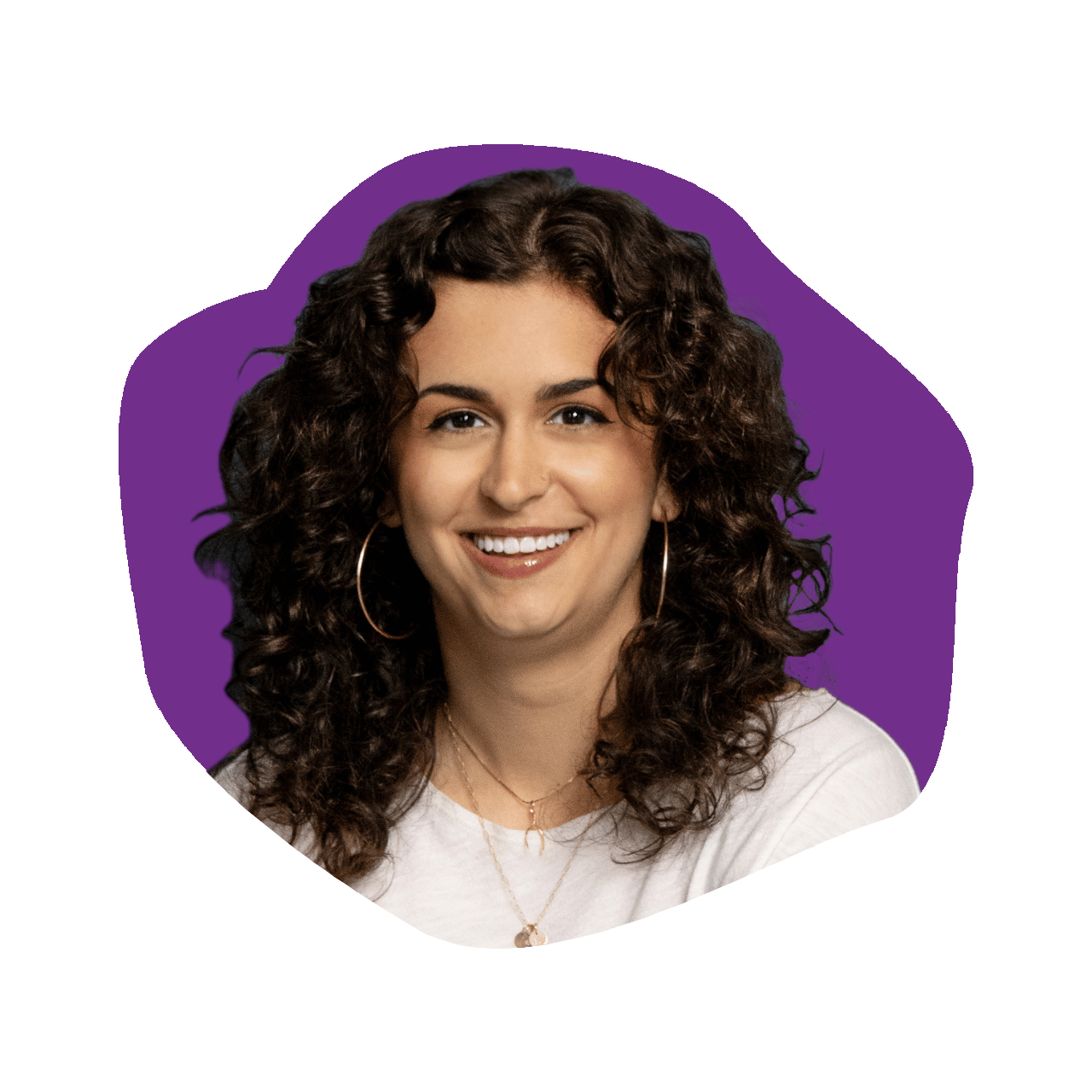Emilie Hoyt: Founder & CEO of LATHER
Episode 606
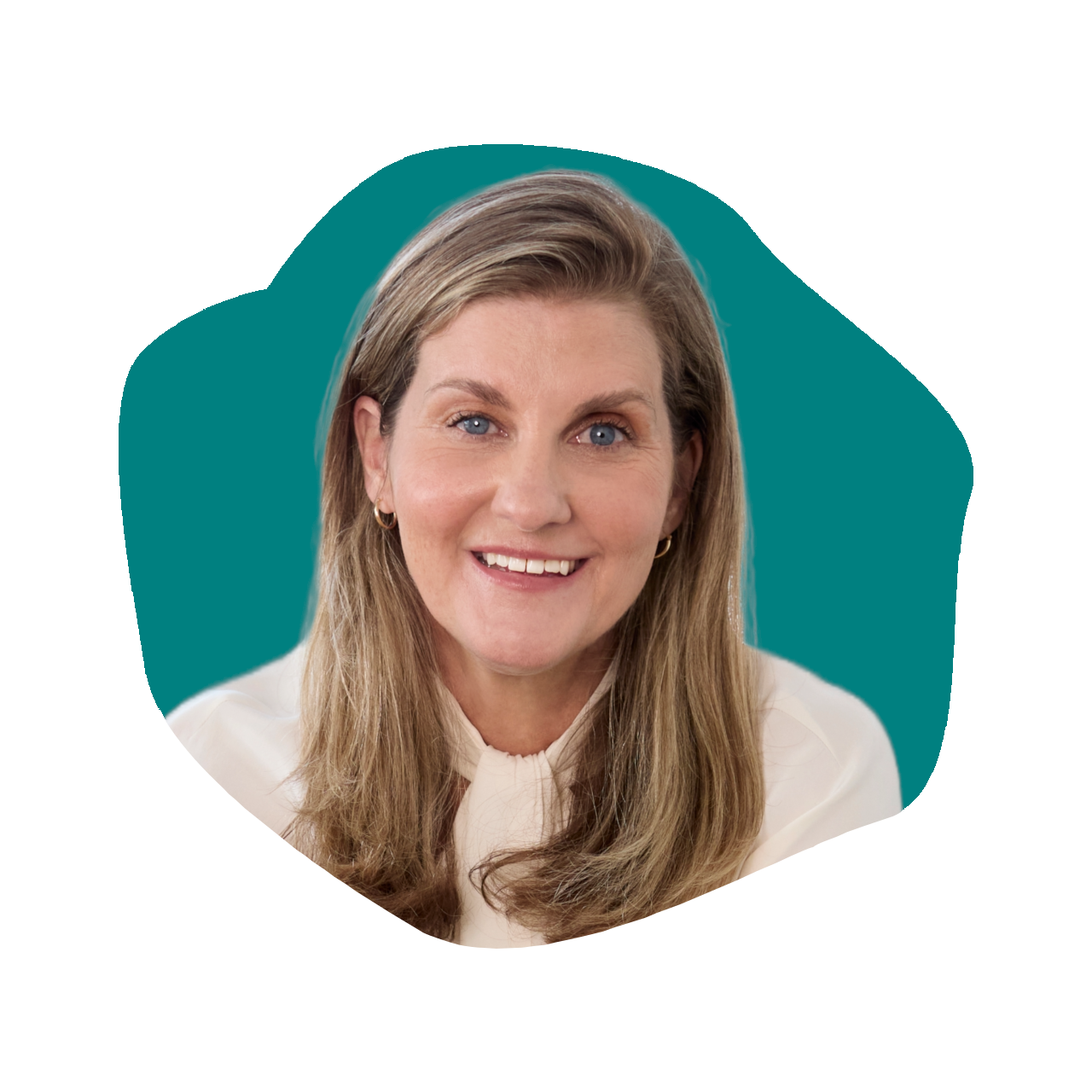
On this episode of The Kara Goldin Show, I’m joined by Emilie Hoyt, the inspiring Founder and CEO of LATHER, a pioneering wellness brand known for its clean beauty products that are free of synthetic fragrances and harmful chemicals. Hear how discovering the cause of her debilitating migraines led her to create a line of skincare and wellness products that focus on natural ingredients, holistic well-being and are fantastic!
We dive into Emilie’s incredible 25-year journey of building LATHER from the ground up, the challenges of maintaining a clean beauty brand long before it was mainstream, and how the brand has grown to become a trusted name not only for consumers but also in the luxury hospitality industry. Emilie shares her insights on entrepreneurship, the evolution of clean beauty, and the future of wellness. This conversation is packed with valuable lessons on clean beauty, sustainability, and staying true to your mission while scaling a business. Don’t miss it! Tune in now on The Kara Goldin Show!
Resources from
this episode:
Enjoying this episode of #TheKaraGoldinShow? Let Kara know by clicking on the links below and sending her a quick shout-out on social!
Follow Kara on LinkedIn – Instagram – X – Facebook – TikTok – YouTube – Threads
Have a question for Kara about one of our episodes? Reach out to Kara directly at [email protected]
To Learn More About Emilie Hoyt and LATHER:
https://www.instagram.com/lather
https://www.instagram.com/emilie_d_hoyt
https://www.facebook.com/latherskincare
https://www.linkedin.com/in/emilie-d-hoyt
https://www.lather.com
Transcript
Kara Goldin 0:00
I am unwilling to give up that I will start over from scratch as many times as it takes to get where I want to be. I want to be you. Just want to make sure you will get knocked down. But just make sure you don’t get knocked out, knocked out. So your only choice should be go focus on what you can control. Control. Hi everyone, and welcome to the Kara Goldin show. Join me each week for inspiring conversations with some of the world’s greatest leaders. We’ll talk with founders, entrepreneurs, CEOs and really, some of the most interesting people of our time. Can’t wait to get started. Let’s go. Let’s go. Hi everyone, and welcome back to the Kara Goldin show. I’m so excited to be joined by Emilie Hoyt, who is the founder and CEO of LATHER, a trailblazing brand in the clean beauty and wellness space. And her journey began when she started experiencing debilitating migraines. We’re going to hear all about that, but through extensive research, she discovered that her personal care products were causing were a major trigger, I should say, particularly the synthetic fragrances. But can’t wait to hear more about that, because I’m sure there’s quite a few people listening who may have run into this and or maybe haven’t been able to figure out what the symptoms are. And it’s worth, definitely worth a try, trying to take a look at everything inside of your house. So this realization led her on a mission to create LATHER, which is a brand that I just love and the brand is committed to offering natural, safe and effective products free of harmful chemicals and synthetic fragrances, and they’re celebrating their 25th anniversary this year, which is so awesome. I love female founded companies like with lots of longevity, that are really going the extra mile for sure. So I cannot wait to talk to Emilie more about what’s in store and overall her journey. So without further ado, welcome Emilie. How are you?
Emilie Hoyt 2:15
I’m great. Thank you so much for having me. I’m so excited to be here and get to meet you very,
Kara Goldin 2:23
very excited before we jump into your overall journey. Can you give a short description of the brand LATHER for everyone?
Emilie Hoyt 2:32
Yeah, LATHER is a wellness based personal product company. We specialize in making products for the hair, body, skin, really, head to toe, everything except makeup, to be part of your daily routine and to be part of problem solution, solutions for all your your problems, whether that be like we have things for muscle aches, sleep, everything to make you help, help you feel and your best.
Kara Goldin 3:04
So you guys are really in the personal care space. I mean, versus beauty is that where you would consider, that’s
Emilie Hoyt 3:11
what I consider, because we specialize in products that are for for daily use, and as well as some specific problems, but we’re not aimed to make you necessarily more beautiful, unless being more beautiful is a byproduct of having really healthy skin and feeling your best, which I think It is a byproduct of that, but it’s not a superficial goal of ours.
Kara Goldin 3:46
Got it? Okay? So LATHER started out of your own discovery of of some things inside of your house. Do you want to take us through that time? And when did you get to a point where you said, I can’t live like this anymore.
Emilie Hoyt 4:03
You know, I I grew up with migraine headaches from the time I was five, actually, and when, and it was huge disruption in in my everyday life, and I was missing a lot of school and in a lot of pain, and when I went through puberty, the migraines got a lot worse, and it was a really terrible time for them to get worse, because school was getting harder, friendships were getting More you know, drama filled in middle school and I was missing in the times I was missing, being home sick were were really impacting my life to the point where I was I was really unable to to cope well at all and bounce back from these. As I, as I had earlier, and we, my mother took me to see a different doctor and more specialized neurologist, and he had me keep a journal of things I ate, how I was sleeping, yeah, menstrual cycles, etc, to try to find triggers that I could avoid, rather than, you know, completely trying to stop them or eliminate them, it was more like, let’s just try to avoid any triggers and minimize This impact on your life. And what I discovered is that I was affected when I was around that my first discovery was being around heavy perfume, and this was in the 80s, a lot of perfume. So if I was in carpool with a mom that had a lot of perfume, if my own mom had was going to an event or something, and was had a lot of perfume. I started noticing that was a trigger. And so we decided, okay, let’s do an experiment and try to eliminate this and see if I have less headaches per month. And it was seemed pretty simple, because, okay, well, you know, we’re gonna call the moms and tell them not to wear perfume on the carpal days and my own. You know, we’re thinking it’s just perfume, the perfume that was so popular back then, which it was like obsession. I don’t know if you remember, yeah, I do obsession, but it was, you know, so, but what we found was, and what I found was perfume was in everything. It wasn’t just the little bottle on, you know, my mom’s counter. It was in everything. So it was in all the beauty products, the laundry, even the trash bags, which trash bags still today, some of them have perfume, which makes me crazy. So it was in, it was just in everything, and eliminating it was this, you know, large task, overwhelmingly large task. And then trying to find replacement products to use became this enormous task. And going to the store, the fancier department store in my town, which was called buffums, and going to buffums and looking for like, oh, they must have very special products here, everything had the word fragrance, and then going to thrifty drugstore, everything had the word fragrance. And not only that, but they were the exact same words in a row as the expensive store. And it just dawned at me, on me, that these are the same products in different packaging full of this ingredient that might be making me sick. And what’s like, it was just this sort of light bulb moment at, you know, around 13 years old, that that’s just stuck with me the rest of my life. And as I was able to slowly find things that worked for me and eliminate the synthetic fragrance and perfume in products, I found that I was left with a very few choices, if any, and and then it really also the most important thing is that it really did make a difference. For me. My migraines went way down from, like, four times a month to once a month, or even less. So it didn’t cure me at all, but it helped. It helped me. And I think that for a lot of people, fragrance and the ingredients, other ingredients that they might be using might be impacting them. And they’re not thinking about it, you know, they’re thinking, Oh, what did I eat yesterday? Or was there? You know, they’re thinking about other things. They’re not necessarily thinking about your kind of daily products that you’re using in your shower and bathrooms. And, yeah,
Kara Goldin 9:20
it’s interesting. We had a we had a guest on a few months ago, and she had candles that she was realizing that her, you and I were talking about our pets, that her dogs were so allergic to, so they had all these skin allergies, and she could not figure it out. And she kept, like, buying different dog food and grain free and doing all the stuff. And then all of a sudden, she figured out that her favorite candles, her dog was allergic to it. And then she figured out that all these scents around, which is, again, like you just don’t really think
Emilie Hoyt 9:56
about that. You don’t people don’t you. Yeah, I
Kara Goldin 10:00
found it so fascinating. So, so what was the first product that you then created? And had you done this before? I mean, had you been in, you know, creating any type of product before?
Emilie Hoyt 10:16
No, not at all. I had not. I was interested in it, always and always looking for different products or specialty stores that might have something homemade and unique, that didn’t have fragrance in it, artificial fragrance, I should say, because a lot of people think I’m referring to UN fragrance, and not at all, but the perfume, the synthetic fragrance, is what was impacting me. Things that were scented, maybe with lavender or mint or, you know, simple kind of plant based aromas were were fine for me. So I was always interested in it and but no, I didn’t have a background at all, but when I graduated college, I went into public relations and marketing for nonprofits at a large PR firm, and I worked on teen pregnancy prevention, and I worked on HIV and AIDS prevention. And those initiatives that I worked on were really aimed at behavioral change, not necessarily buying a product, but behavioral change. And I would really dive into what would make somebody, you know, change their mind about certain behaviors that might put them at risk, and I would come home, and what I was so frustrated with at the time is that my friends and other people who were my age in their early 20s, out of college, were, at that time in the in the late 90s, getting very into health. We were all going to we had all this good spinning class. We were all, you know, shopping at maybe Whole Foods, if we could maybe afford it, making our own smoothies, jam the juice. But my friends would be spraying perfume, and this is after I would be telling them that I they weren’t thinking about it. They didn’t mean any harm. They just weren’t thinking about it. And I, you know, it was making me so frustrated. And these, these products were, it was just not, was not resonating with them, that it was unhealthy. And so I started actually making very simple products like bath salts. It’s one of the simplest products you can make if you’re ever want to dive into it. Bath Salts are a great first product, things like that, just just to give my friends sell a little bit of gift sets on the side I did, like Mother’s Day. I mean, just for friends, maybe I would sell like 20 of them. And every time I spoke about it, and I had the chance to speak about it, I would with anyone like these products you swear by and love. Look at, look at the label, it says the word fragrance. And an interesting thing that people didn’t realize is that ingredients are mandated to be labeled, but fragrance is an exception. It’s one of the only exceptions that exists under federal law. So even when states pass a lot. It’s trumped by federal law that it’s considered a trade secret, and you do not have to disclose anything. So the word fragrance in your ingredients can be up to, you know, some people say four to 6000 ingredients, but nobody really knows. And so you may be allergic to only one, but you don’t know. It’s not that all fragrance is bad or evil or awful, it’s that the customer consumers don’t know. So I was very passionate about explaining this to everyone, and they would say, Okay, well, what should I use then? And so I started doing more research, and I found a soap maker that made me four different kinds of soap. And I would say there were really moisturizing bar soaps, really lovely. And say, like, use this on your skin. You can use it from your face, head to toe, use this. And then just slowly got into other products and realized that there were some lovely products out there that were just super healthy and beautiful and luxurious, but they were marketed very alternative, like you. You felt like you had put your Birkenstocks on and like head in to buy it. Why? Wasn’t mainstream. It wasn’t the status quo. It was the special diet, you know, for for an alternative. It was a lifestyle, alternative lifestyle choice. So I was frustrated by that, and I went into develop a line that was more modern and not, not an alternative, but, but had everyday products for everyone that would be the standard. And so I, I just dove into it, really, really not, not knowing a whole much more than that, I took a UCLA Extension class in the evenings, and it was, you know, write your own business plan. So I signed up for that, and I did that in the evenings, and this teacher walked us through developing each part of the business plan and and I put together numbers as best I could to see how many I would need to sell and how I would make these and and I, I launched LATHERin in in 1999 um, not, not knowing much more than
Kara Goldin 16:18
than that, yeah. And that was it? So did you sell it online? Or where were you actually, I know you were selling it to friends, but when you didn’t
Emilie Hoyt 16:26
have online, we didn’t have online. I I had an I had a catalog printed at Kinko’s, and I had an 800 number, and I had a handful of products, and I again focused on my plan was to sell a lot of gift sets for holiday and Mother’s Day, primarily to as many people as I could, and to tuck my catalog into those gift sets and to sell it to every, literally, everybody I knew, in my apartment building, in my friend’s apartment buildings, putting my catalog like, you know, in the in the lobby, and then to try to wholesale and to break into my plan was like, well, I’ll Just walk over to Fred Siegel and show them my my line, and it’s super cool. And they’re gonna give me shelf space, of course. And, like, how hard can this be, right? And they, they, I couldn’t even get a me. I mean, it was not even a no it. It was leave the store,
Kara Goldin 17:42
the store, yeah, where did you ultimately end up selling? Did you sell it into a store at some point? No,
Emilie Hoyt 17:49
I couldn’t like at that point in in 1999 independent beauty was not trusted and not considered anything that any reputable store would bring on, it was considered crafty and homemade and not taken seriously. And so at that point, I talked and and, and not only independent beauty, but natural beauty was not trusted at all. There was a fear of there was a fear of bacterial contamination. There were some in this day. There was juices that became contaminated with something that was in everybody’s mind. So they were very, very fearful of natural so I tried everywhere. So for had just launched, and I pitched to them, and literally every single place said no to me, so the dream was going to just be over and but I started thinking that I could maybe open my own store. And I was living in Santa Monica, and I thought, well, I’ll open a little store, and everybody that comes in, I’ll just sell to them. But I couldn’t get, I mean, nobody would lease me. I was 24 years old. It was not gonna happen. And I finally did get a lease of a lovely store in in Pasadena. So I moved to Pasadena and and and opened a store and, and that was, again, I didn’t know what I was doing and I was not prepared. But what was amazing about that path, although I wouldn’t necessarily suggest that path to anyone, because it’s not easy. Is that I met so many customers, I got to see real time how hard it is to sell one product to a stranger, how hard it is what they. Don’t like at all when you’re sure they would like it and what they do like. And it was all real time. I was getting feedback every day real time. And I think having a storefront helped me break the barrier of credibility with a lot of the just the walk in traffic that I wasn’t able to get anywhere else. So I think that gave me an advantage. And then when they were in the store, I wasn’t competing against other brands on my shelf. I was able to get that higher margin because I wasn’t wholesaling, and I was getting all this feedback, or people asking, you know, do you you have something for really dry hair? And I didn’t, but I would file that away and look to create that. And so while it was not easy, we made it through our first year, and from then on, we were we were we were above water, we were able to to continue and and so that was in in 1999 and we’re still we’re still here so and I know a lot more now than I did. Yeah,
Kara Goldin 21:18
so what was kind of the breakout moment for LATHER. Then what was it that, you know, really kind of helped you to know that this was going to pay off?
Emilie Hoyt 21:28
Yeah, I think there were a few, I think making it. It wasn’t maybe one huge moment, but the first year was so hard, and I had opened in October, and getting to that next October was so difficult, and I told myself, I’m going to give it a year, you know? And that’s what I was planning. And and then we went into holiday, and that that second it was technically our second holiday, but it felt like our first. We had, we had built a small customer base that all came in, and we didn’t have gifts. We didn’t know about we weren’t thinking gifts, but we started putting gifts together, and we did very well that second holiday, and I started seeing that that I have a product that not only people are using every day, and that I have, I have earned a spot on their on their next to their sink and in their shower, but that they they want to share and they want to gift And and that gave me a lot of hope. And I remember thinking, if I can get my product in more people’s hands, I’m going to be okay, because they’re coming back and the products that they’re not coming back from, I’m going to discontinue. I’m it’s I’m going to not, you know, like it was hard for me because I felt like they were, like my children, but I, yeah, I was able to, like, always, okay, those didn’t work. I’m going to make these kinds of products. And then in that following year, I got a phone call from this woman that said, I am working on developing this new hotel, and the president of our company had recently been in Pasadena and bought a gift for his wife, and she has asked me to reach out to you, because she’s really wants your products in this hotel. Will you do that? And I said, Yeah, I’ll do that. And I flew out to meet that team, and it was in Atlantic City. And I don’t know if you’ve been to Atlantic City, but Atlantic City at that time was not, maybe one where you want to showcase your brand, but these this team was building this beautiful, four star hotel called the bricada, and they this, the president’s wife loved our products. And I was in that meeting, and they said, We’re gonna have 2000 rooms. Can you produce these and deliver every month. And I said, Yes, I will. And I remember, I remember being on this bus back to New York City and calling my husband and saying, I don’t how are we going to do this? And he said, You know what, we’re we’re going to figure it out, because this is a great opportunity. And I knew if I could figure that out and have 2000 people every day showering with my product like I was really, I was really gonna make it. I would need because, and I kept thinking, they have my 800 number. I mean, we didn’t know website, and there was no online, they have my 800 numbers. So one. We’re gonna need to get more phone lines and figure out, like mail order and really, and and we did. We figured it out, and our phones rang non stop until we had website, and
Kara Goldin 25:14
you were in, and you’ve expanded into more hotels as well, beyond the Borgata and continued, and obviously have a incredible direct business too. One of the things that I loved reading about was the landscapes collection and its ocean positive impact. Can you talk about how that’s like a, you know, really near and dear to your heart?
Emilie Hoyt 25:41
Yeah, you know, I think that being in this industry, we need to take this plastic problem very seriously and and come together to find solutions. And I spent years trying to find different materials than plastic, and it’s really difficult. I think there’s some exciting technologies on the horizon, and I think I really believe we’re going to be okay. We’re going to get through this plastic crisis, but right now, we’re in it, and we need to help fix it. And and we looked at everything from aluminum to glass to some of these, these new technologies, using seaweed. But what we found that we are able to do right now, that we think we can do the best and consistent, consistently, have deliver products is using plastic that’s collected right at the coastline in communities that do not have good recycling. So in other words, we have a 98% confidence that the plastic we collect is going to end up in the ocean, and so if we weren’t picking it up, so we’re not just collecting plastic that might have been recycled elsewhere. We’re picking up plastic that was headed right into our ocean. And so we’re doing that with our new landscapes collection. We wanted to figure this entire supply chain out with one collection first before we expanded it. And I’m so thrilled. And then we decided to feature ingredients that were collected at all the landscapes that we love to travel, so the mountains, forest, desert and coast and make a shampoo, conditioner, body wash and lotion, and soon to be launched, hand wash and so we that’s our newest collection. We’re excited to bring it to hospitality as well as consumer because hospitality is trying so hard to to cut their plastic use and single use plastic as well. So, yeah, that’s our latest collection that we’re really excited about.
Kara Goldin 28:12
That’s very cool. So last question, what’s one piece of advice you’d give to your younger self, looking back on, you know, those early days of LATHER and and I get it. I mean, that first year is is so challenging for any business. But what would you say now, knowing what you know
Emilie Hoyt 28:35
that you’re not going to be for everyone. And I mean that with the product, your vision, the way you choose to do things, you’re not going to be for for everyone. So Don’t, don’t try to be and find those people who you can trust, who will you know, who who will challenge and debate you, but that you can eventually align with and and you know, your team is everything, absolutely and I think I didn’t realize that when I was younger,
Kara Goldin 29:17
yeah, no, no one can really teach you that. And I think even in the best entrepreneur classes that exist today and universities across the country, no one is teaching that. And it takes a team in order to really, you know, build as you have for your 25th anniversary, obviously great staying power. So Emilie, thank you so much for coming on. LATHER is absolutely terrific, and everyone needs to hop on and get some LATHER or visit you in your in your location you still have the same location in Pasadena, we have
Emilie Hoyt 29:59
full. Our locations and ladder.com and in the Atlanta airport, we’re in the T terminal. Check us out if you’re passing through. But yes, Pasadena, Long Beach, Phoenix and Fairfax, Virginia are other locations as well as LATHER.com
Kara Goldin 30:18
Awesome, and we’ll have all that info in the show notes too, but thanks again, Emilie, and thanks everyone for listening.
Emilie Hoyt 30:25
Bye, bye.
Kara Goldin 30:26
Thanks again for listening to the Kara Goldin show. If you would please give us a review and feel free to share this podcast with others who would benefit. And of course, feel free to subscribe so you don’t miss a single episode of our podcast. Just a reminder that I can be found on all platforms. At Kara Goldin, I would love to hear from you too. So feel free to DM me, and if you want to hear more about my journey, I hope you will have a listen or pick up a copy of my Wall Street Journal, best selling book, undaunted, where I share more about my journey, including founding and building hint we are here every Monday, Wednesday and Friday. Thanks for listening, and goodbye for now. You.





